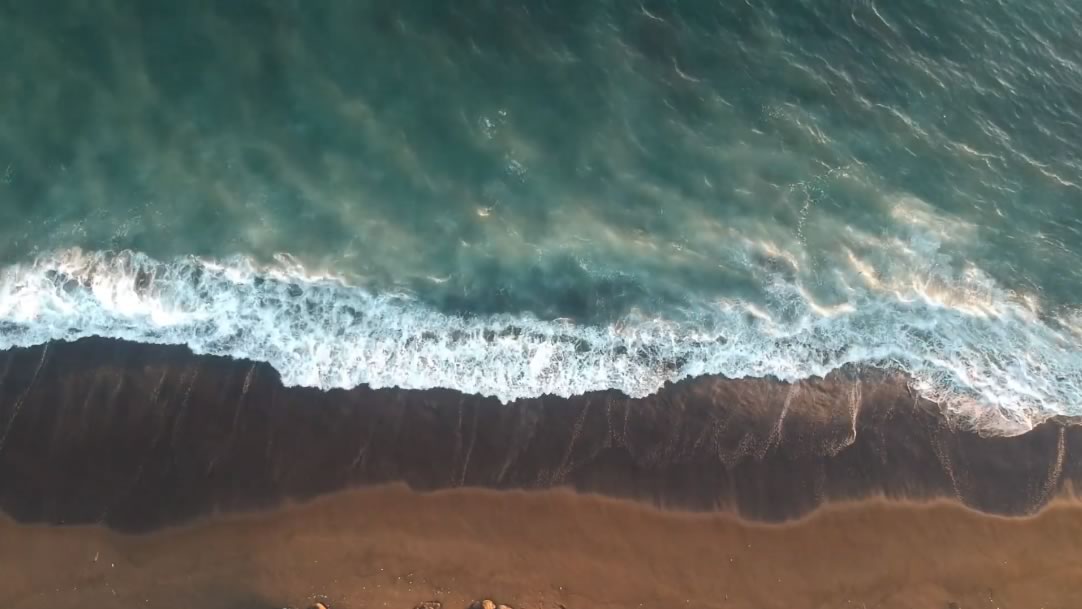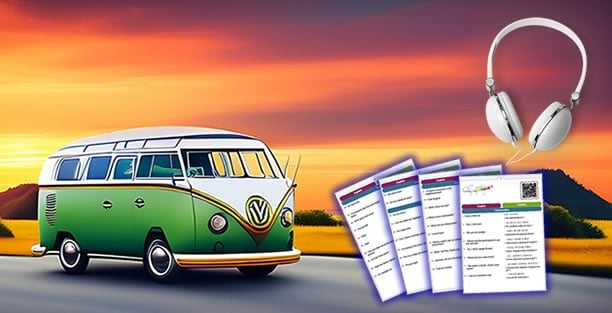Learn Walloon
| English | Walloon | |||
|---|---|---|---|---|
| Hello | Bondjou | |||
| Good evening | Bone nut' | |||
| Good evening | Bonut' | |||
| Goodbye | Å r'vèy | |||
| See you later | Disqu'a pus tård | |||
| See you later | (Disqu')a tot-rade | |||
| Yes | Awè | |||
| No | Nèni | |||
| No | Nonna | |||
| Excuse me! | S'i-v' plêt ! | |||
| Thanks | Mèrci | |||
| Thanks a lot | Mèrci bråmint dès côps ! | |||
| Thank you for your help | Mèrci po vosse côp di spale ! | |||
| You’re welcome | Ci n'èst rin d' çoula | |||
| You’re welcome | çoula n' våt nin lès ponnes | |||
| Okay | D'acwérd | |||
| How much is it? | Kibin çoula costêye-t-i ? | |||
| Sorry! | Pardon ! | |||
| I don't understand | Dji n' comprind nin | |||
| I get it | Dj'a compris | |||
| I don't know | Dji n' sé nin | |||
| Forbidden | Disfindou | |||
| Excuse me, where are the toilets? | Wice sont-i lès cabinèts, si-v' plêt ? | |||
| Happy New Year! | Bone annêye ! | |||
| Happy Birthday! | Bonès-annêyes ! | |||
| Happy Holidays! | Djoyeûsès fièsses ! | |||
| Congratulations! | Proféciyat´ ! | |||
| Congratulations! | Complumints |
Objectives Do you want to discover Walloon to connect with a regional language deeply rooted in the history and culture of Wallonia? Loecsen offers a structured Walloon course for beginners, designed to reach the skills expected at the CEFR A1 level. Vocabulary and sentences are selected to represent real usage, following a clear and accessible learning progression. Even a few words of Walloon can pleasantly surprise local speakers, who are not used to hearing their language spoken by learners. With 5 to 15 minutes of practice per day, you can build simple foundations and help keep Walloon alive.
Bondjoû! Welcome to Bondjoû!
Welcome to this improved conversation guide. We've taken a practical approach to help you learn the basics of a language quickly. We suggest that you start by memorizing practical words and expressions that you'll be able to use every day at home, and which will then come in handy if you want to integrate into Wallonia, . Practicing pronouncing vocabulary aloud - numbers, for example - is a good exercise that can be done at any time of day. It'll help you get used to the sound of the language.
Walloon: a historic language for humor and folk wisdom
1. History and origins of Walloon
Walloon is a Romance language spoken mainly in Wallonia, the French-speaking region of southern Belgium. Of Latin origin, it derives from Gallo-Romance, as does French. Over the centuries, Walloon has undergone various influences, including those of Germanic and Celtic languages, as well as local dialects. The Walloon language has been strongly influenced by the history of Belgium, whose culture is a delicious blend of traditions and foreign influences. So, are you ready to embark on a linguistic and humorous journey through the intricacies of the Walloon language?
2. Current situation and characteristics of Walloon
The Walloon language is characterized by great dialectal diversity, with regional variations that are sometimes quite marked.
These variations are grouped around four main areas: western Walloon (Carolorégien), central Walloon (Namurois), eastern Walloon (Liège) and southern Walloon (prov. de Luxembourg).
So don't be surprised if you hear Walloon speakers express themselves differently from one town to the next - it's simply the charm of Walloon at work! !
Walloon is also distinguished by its distinctive pronunciation and specific vocabulary, making it a language in its own right. It's renowned for its lilting accent and syntax, which can occasionally seem strange to speakers of French. Nonetheless, the Walloon language has retained many aspects of Latin, making it a familiar language for lovers of Romance languages. So don't panic, it's never too late to start learning Walloon and its subtleties!
3. Walloon and humor: an inseparable duo
Walloon is often associated with humor and conviviality. Indeed, the Walloon language has spawned numerous authors, comedians and humorists who have taken advantage of its quirky, picturesque side. From café-theater shows to one-man shows, songwriters and poets, the Walloon language has always been a fertile ground for the expression of humor and derision.
The Walloon language is also used in many popular expressions and proverbs, which reflect the wisdom and humor of the people of Wallonia. So, if you want to fully understand and appreciate Walloon humor, it's time to immerse yourself in this multi-faceted language. After all, as the Walloon proverb says:"Creûre, c'èst dèdjà k'mincî" (to believe is already to begin). And, as proof of the finesse of this language, you might also come across this variant:"Cwèrî, c'èst dèdjà k'mincî"(to seek is already to begin).
Why speak Walloon today?
Walloon is not a museum language: its speakers range from Liège to the USA!
Walloon is mainly spoken in Luxembourg (excluding the provinces of Gaume and Arlon), Namur, Liège, Brabant Wallon and Charleroi. as well as in eastern Hainaut. The dialect is also spoken in France, particularly in the Ardennes.
And, although it may seem surprising, the langue d'oïl is also spoken in Green Bay and Wisconsin, in the United States. And has been since the 19th century!
How can I get my pronunciation right?
With unified Walloon, a common writing system between the above-mentioned languages, all Walloon words are written in the same way. Their pronunciation differs from region to region. However, this spelling system is not the one we have chosen here, as it does not reflect the actual practice of Walloon speakers, who are often confused by the recast.
The orthographic system used here is the Feller system.
It is based on phonetic and analogical features, which make reading and writing possible without the need for lengthy graphical training.
Important features include the use of the circumflex accent to mark the lengthening of sounds, the use of the "minute" (') to indicate the pronunciation of a letter at the end of a word (e.g. li nut' - night, or li song' - blood), and the elimination of all consonant doubling that is not pronounced (e.g. a double n is maintained to mark nasalization - ( annêye, saminne ).
Care must be taken to lengthen sounds with the circumflex accent, and not the others, to avoid confusion of meaning (see explanation in Alphabet wallon, with the example messe / mêsse).
You should also be careful not to pronounce letters that are present for grammatical reasons (-s for plurals, for example), and only those marked by a minute.
Finally, you need to be careful about repeating consonants that modify pronunciation.
Finally, the h is systematically exhaled, and this is a major feature that helps to ensure correct pronunciation. For example: ouh (door), pèhon (fish). If it's not pronounced, it's not written (e.g.: l'eûre - the hour).
The Walloon alphabet
The langue d'oïl uses the same alphabet as the French language.
What's more, the letters are pronounced the same, with the exception of "w" and "y". The first is called wé instead of "double V". And the second is called yod. In addition, the Walloon alphabet has another peculiarity: the round head is only used above the letter "a" (å). For example: Årdene.
In addition, the circumflex accent above vowels represents the length of the pronunciation of words; at the same time, it makes it possible to distinguish between two homonyms. Examples: messe (mass) and mêsse (a master).
Note that the x does not exist and is always replaced by -ks- or -gz-. This is what distinguishes it from the recast, which uses it to mark the pronunciation of an open h, for example (and introduces difficulties for the reader in its spelling).
Course syllabus – What you’ll learn
- Essentials 3-5H • 64-96D • 25-38 sessions
- Conversation 3-5H • 64-96D • 25-38 sessions
- Learning 1-2H • 61-92D • 10-15 sessions
- Colours 1-2H • 61-92D • 10-15 sessions
View all lessons (17)
- Numbers 4-6H • 67-101D • 40-60 sessions
- Time tracking 3-5H • 64-96D • 25-38 sessions
- Taxi 2-3H • 62-93D • 15-23 sessions
- Family 2-3H • 62-93D • 15-23 sessions
- Feelings 2-3H • 63-95D • 20-30 sessions
- Bar 3-5H • 64-96D • 25-38 sessions
- Restaurant 3-5H • 65-98D • 30-45 sessions
- Parting 2-3H • 62-93D • 15-23 sessions
- Transportation 0-0H • 59-89D • 0-0 sessions
- Hotel 3-5H • 65-98D • 30-45 sessions
- Looking for someone 1-2H • 61-92D • 10-15 sessions
- Beach 3-5H • 65-98D • 30-45 sessions
- In case of trouble 2-3H • 63-95D • 20-30 sessions





